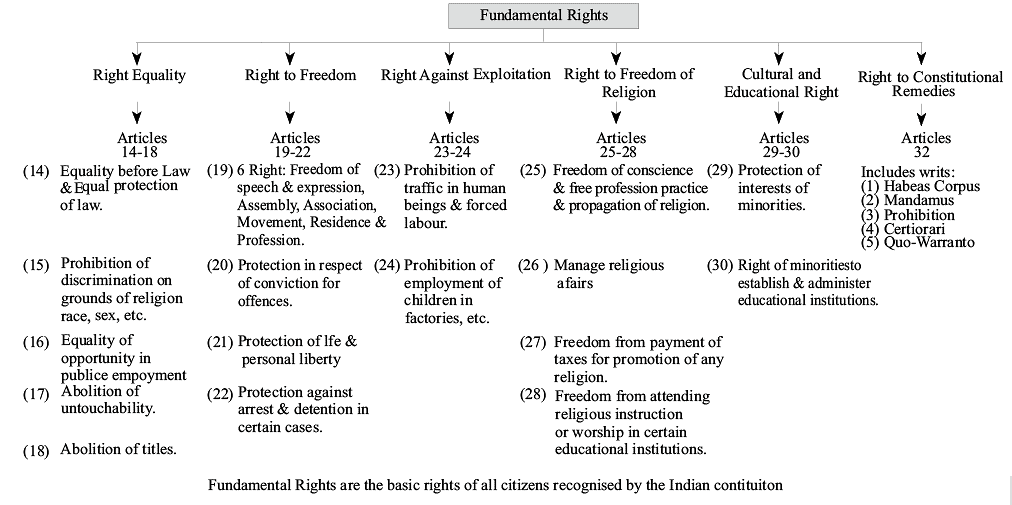Fundamental Duties and Rights | GK Olympiad for Class 6 PDF Download
Fundamental Duties
Our Constitution lays down that it shall be the duty of every citizen of India:
- to abide by the Constitution and respect its ideals and institutions, the National Flag and the National Anthem;
- to cherish and follow the noble ideals which inspire our national struggle for freedom;
- to uphold and protect the sovereignty, unity and integrity of India;
- to defend the country and render national services when called upon to do so;
- to promote harmony and the spirit of common brotherhood amongst all the people of India transcending religious, linguistic and regional or sectional diversities; to renounce practices derogatory to the dignity of women;
- to value and preserve the rich heritage of our composite culture;
- to protect and improve the national environment including forests, lakes, rivers and wildlife, and have compassion for living creatures;
- to develop the scientific temper, humanism and the spirit of inquiry and reform;
- to safeguard public property and to abjure violence;
- to strive towards excellence in all spheres of individual and collective activity, so that the nation constantly rises to higher levels of endeavour and achievement.
Fundamental Rights

The right to information Act

The act came into force on 12th October, 2005. Any Indian citizen can request information from government body. He/She is entitled to receive a speedy and effective reply within thirty days.
Parliament
The Union executive consists of the President, Vice President, the Prime Minister and the council of ministers. They execute the laws at the centre.

Indian Judiciary
The constitution of India provides for a single and integrated judicial system. The structure of the judiciary system is pyramidal with supreme court at top


Elections in India
Election is a process of electing a representative who acts on the behalf of the people who voted for him. In India, elections are held to form the central government, the state government and the local governments.
Let us learn about some important terms related to elections.
- Candidate - Person who stands for election
- Constituency - Group of voters in a particular area who elect a representative to a legislative body
- Election commission - Body which decides the date of election, conducts free and fair election and declares results
- Electorate - Group of people who vote
- EVM (Electronic Voting Machine)–Machine used to cast vote electronically.
- Election symbol - A sign chosen by a candidate/political party to contest election
- Exit poll - A survey of people leaving a poll booth after casting their vote.
- General elections - Election held for Lok Sabha in India
- Suffrage - Civil right to vote in election.
- Voting age - Minimum age required for a person to vote is 18 years in India.
|
27 docs|62 tests
|
FAQs on Fundamental Duties and Rights - GK Olympiad for Class 6
| 1. What are fundamental duties? |  |
| 2. Are fundamental duties legally enforceable? |  |
| 3. How many fundamental duties are there? |  |
| 4. Can fundamental duties be amended? |  |
| 5. How do fundamental duties differ from fundamental rights? |  |

|
Explore Courses for Class 6 exam
|

|

















